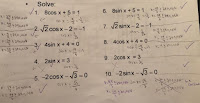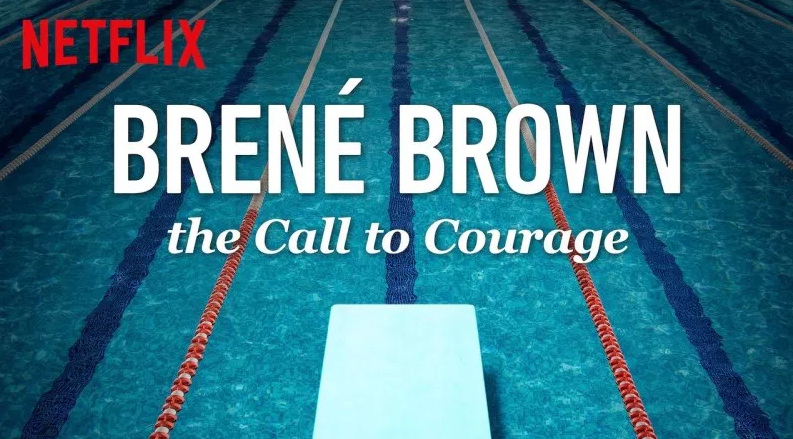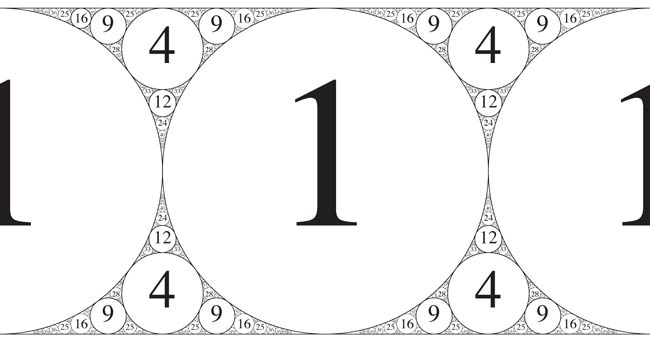 Being able to estimate is a great skill for students to have. And so why not estimate angles and distances in a fun way. In this activity @sergeballif does an awesome job of it with Degree Golf. Students start on hole one and estimate the angle to shoot and the distance to the hole. The number of shots is kept track of and then once they do all the holes, there is a Challenge creator for students to create their own hole for the rest of the class to try.
Being able to estimate is a great skill for students to have. And so why not estimate angles and distances in a fun way. In this activity @sergeballif does an awesome job of it with Degree Golf. Students start on hole one and estimate the angle to shoot and the distance to the hole. The number of shots is kept track of and then once they do all the holes, there is a Challenge creator for students to create their own hole for the rest of the class to try.
Curriculum Tags: Gr7, Gr8
Resource Links
 If you like Pi and Python coding then you might like this blog post about mixing those things. The code is there and the different types of Pi calculations. And it has one of my favourite infinite series methods. So have some fun. Thanks to @yaboimackp for this one.
If you like Pi and Python coding then you might like this blog post about mixing those things. The code is there and the different types of Pi calculations. And it has one of my favourite infinite series methods. So have some fun. Thanks to @yaboimackp for this one.
Curriculum Tags: MCR3U
 I really like this assessment idea from @a_mcsquared. The premiss is this (I am simplifying): You give an assignment and the day before it is due you make the answers with full solutions available and then ask students to grade their own assignments. Who hasn't given out an assignment (or test), posted full solutions after grading to see very few kids actually look at them. In this case, having students do the grading themselves will likely give them better insight into what went wrong because they have done the work. Check out the full explanation here.
I really like this assessment idea from @a_mcsquared. The premiss is this (I am simplifying): You give an assignment and the day before it is due you make the answers with full solutions available and then ask students to grade their own assignments. Who hasn't given out an assignment (or test), posted full solutions after grading to see very few kids actually look at them. In this case, having students do the grading themselves will likely give them better insight into what went wrong because they have done the work. Check out the full explanation here.
Curriculum Tags: All
http://audrey-mcsquared.blogspot.com/2019/06/changing-follow-up-into-rise-up.html
 And speaking more on assessment, @BCphysics did a little experiment where they posted a series of marks and asked people to holistically and more formally determine a grade. What were the results? That in most cases, the holistic grade was just fine. I would go even further to say that the idea that we can somehow calculate any grade and be confident of it's accuracy is a fallacy. That is, if you calculate a grade of 83.25% (because you can), I would argue that that precision is misleading. In fact, I would argue that you are probably only confident to +/- 5%. Read more here.
And speaking more on assessment, @BCphysics did a little experiment where they posted a series of marks and asked people to holistically and more formally determine a grade. What were the results? That in most cases, the holistic grade was just fine. I would go even further to say that the idea that we can somehow calculate any grade and be confident of it's accuracy is a fallacy. That is, if you calculate a grade of 83.25% (because you can), I would argue that that precision is misleading. In fact, I would argue that you are probably only confident to +/- 5%. Read more here.
Curriculum Tags: All
http://physicsoflearning.com/edblog/holistic-vs-calculated-grading/
Opinion Links
 In this post @MathGarden talks about the idea that math is not about getting the answer. In fact, he says: "That mathematics is only worth doing if you can be correct. That mathematics can only be appreciated by being proficient. That mathematical expertise is obtainable in this narrow definition of mathematics. All of this is false." Read more at the link below. Thanks to @KMarkPet for this one.
In this post @MathGarden talks about the idea that math is not about getting the answer. In fact, he says: "That mathematics is only worth doing if you can be correct. That mathematics can only be appreciated by being proficient. That mathematical expertise is obtainable in this narrow definition of mathematics. All of this is false." Read more at the link below. Thanks to @KMarkPet for this one.
Curriculum Tags: All
https://medium.com/@sunilsingh_42118/mathematics-in-the-age-of-brene-brown-6f0bc4a179c2
Curriculum Tags: MCR3U
 I really like this assessment idea from @a_mcsquared. The premiss is this (I am simplifying): You give an assignment and the day before it is due you make the answers with full solutions available and then ask students to grade their own assignments. Who hasn't given out an assignment (or test), posted full solutions after grading to see very few kids actually look at them. In this case, having students do the grading themselves will likely give them better insight into what went wrong because they have done the work. Check out the full explanation here.
I really like this assessment idea from @a_mcsquared. The premiss is this (I am simplifying): You give an assignment and the day before it is due you make the answers with full solutions available and then ask students to grade their own assignments. Who hasn't given out an assignment (or test), posted full solutions after grading to see very few kids actually look at them. In this case, having students do the grading themselves will likely give them better insight into what went wrong because they have done the work. Check out the full explanation here.Curriculum Tags: All
http://audrey-mcsquared.blogspot.com/2019/06/changing-follow-up-into-rise-up.html
Curriculum Tags: All
http://physicsoflearning.com/edblog/holistic-vs-calculated-grading/
Opinion Links
 In this post @MathGarden talks about the idea that math is not about getting the answer. In fact, he says: "That mathematics is only worth doing if you can be correct. That mathematics can only be appreciated by being proficient. That mathematical expertise is obtainable in this narrow definition of mathematics. All of this is false." Read more at the link below. Thanks to @KMarkPet for this one.
In this post @MathGarden talks about the idea that math is not about getting the answer. In fact, he says: "That mathematics is only worth doing if you can be correct. That mathematics can only be appreciated by being proficient. That mathematical expertise is obtainable in this narrow definition of mathematics. All of this is false." Read more at the link below. Thanks to @KMarkPet for this one.Curriculum Tags: All
https://medium.com/@sunilsingh_42118/mathematics-in-the-age-of-brene-brown-6f0bc4a179c2
Video Links
I thought this video on the Fourier Series from @3blue1brown was awesome. It does get into the weeds a bit but the visuals are great for talking about adding vectors, adding functions, limits, calculus, transformations and more high end stuff. It's a bit long but I think it would be cool to have students watch it and talk about all the parts that relate to the math they are doing. And honestly, I love that a 25 min long video on Fourier series can get over 600k views in a few days.
Curriculum Tags: MHF4U, MCV4U
https://www.youtube.com/watch?v=r6sGWTCMz2k
And for a slightly simpler version, you might like this one from @smartereveryday
Curriculum Tags: MHF4U, MCV4U
https://www.youtube.com/watch?v=ds0cmAV-Yek
Curriculum Tags: MHF4U, MCV4U
https://www.youtube.com/watch?v=r6sGWTCMz2k
And for a slightly simpler version, you might like this one from @smartereveryday
Curriculum Tags: MHF4U, MCV4U
https://www.youtube.com/watch?v=ds0cmAV-Yek
Image Links
who doesn't like fun with an Apollonian gasket where the numbers show 1/r, where r is a given circle’s radius.
Curriculum Tags: Gr 8
https://www.americanscientist.org/article/a-tisket-a-tasket-an-apollonian-gasket
Curriculum Tags: Gr 8
https://www.americanscientist.org/article/a-tisket-a-tasket-an-apollonian-gasket


This comment has been removed by a blog administrator.
ReplyDeleteThis comment has been removed by a blog administrator.
ReplyDeleteThis comment has been removed by a blog administrator.
ReplyDeleteThis comment has been removed by a blog administrator.
ReplyDeleteThis comment has been removed by a blog administrator.
ReplyDeleteThis comment has been removed by a blog administrator.
ReplyDeleteThis comment has been removed by a blog administrator.
ReplyDelete